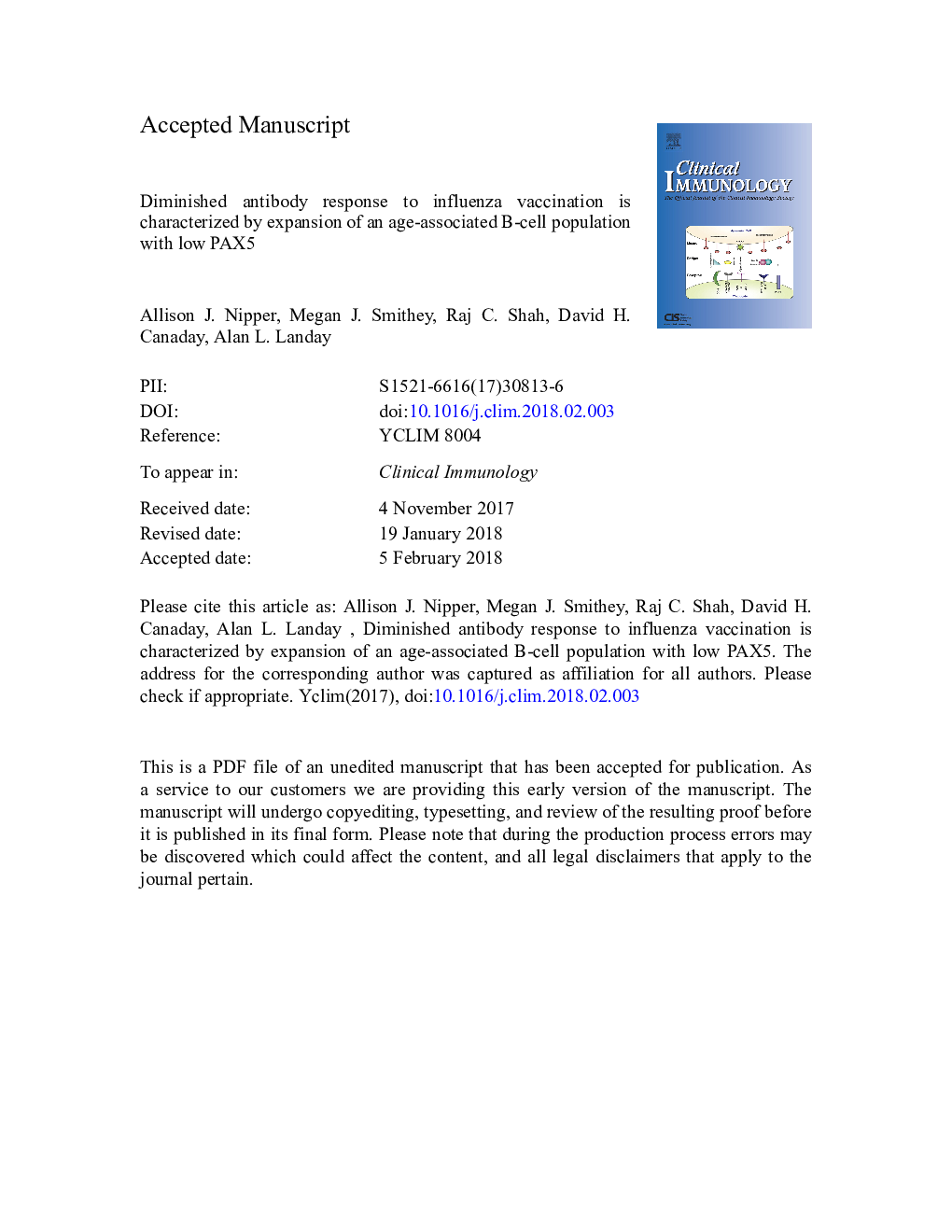| Article ID | Journal | Published Year | Pages | File Type |
|---|---|---|---|---|
| 8721251 | Clinical Immunology | 2018 | 33 Pages |
Abstract
Individuals over the age of 65 comprise a substantial portion of the world population and become more susceptible to vaccine-preventable infections with age as vaccination response diminishes. The underlying reason for this impaired vaccine response in older individuals is not entirely clear. We evaluated potential differences in phenotypic and functional responses of B cells from healthy younger (22-45Â years) and older (64-95Â years) individuals that may associate with a diminished antibody response to influenza vaccination. We report that age is associated with expansion of atypical memory B cells (CD10âCD20+CD21âCD27â) and an age-associated B cell (ABC, CD21âT-bet+CD11c+) phenotype. Reduced expression of PAX5 was also seen in older individuals. Poor influenza-specific antibody production following vaccination was associated with low PAX5 expression and a distinct composition of the ABC compartment. Collectively, these findings demonstrate that the characteristics of the ABC populations of older individuals are associated with antibody production following influenza vaccination.
Related Topics
Life Sciences
Immunology and Microbiology
Immunology
Authors
Allison J. Nipper, Megan J. Smithey, Raj C. Shah, David H. Canaday, Alan L. Landay,
